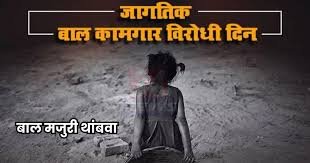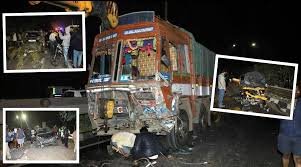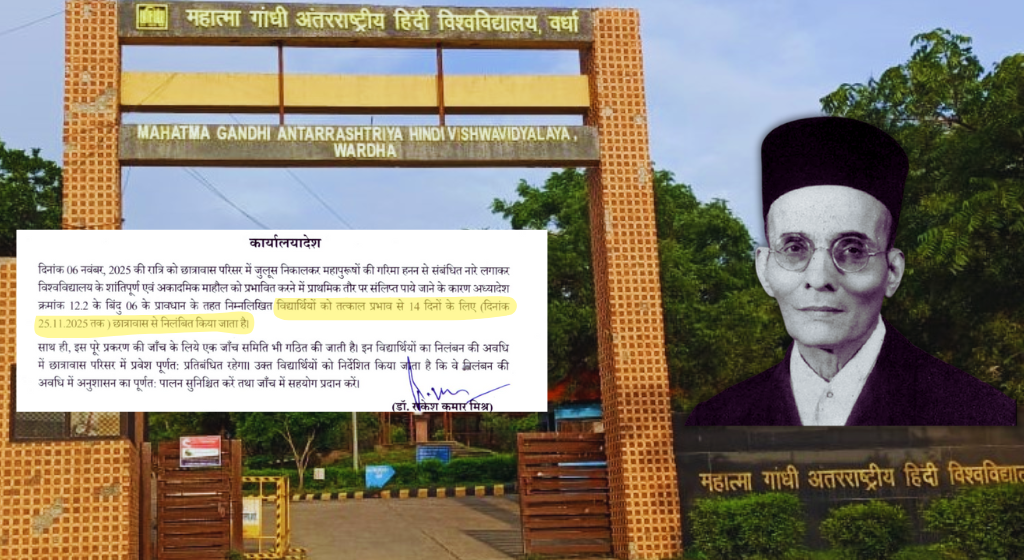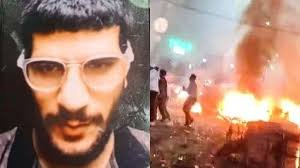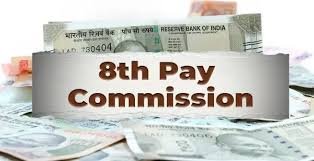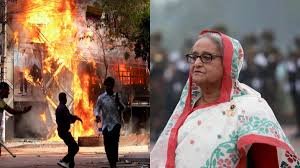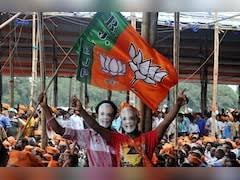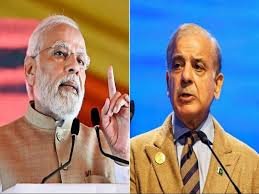
Pakistan besieged on two sides: Afghan border threat and fear of possible Indian attack
New Delhi/Islamabad: Pakistan's worries have doubled after the horrific bomb blast near the Red Fort in Delhi. On the one hand, there is the fear of attacks by terrorist groups like the Tehreek-e-Taliban Pakistan (TTP) in Afghanistan on the western border, and on the other hand, there is the fear of a possible military action by India on the eastern border. This dual crisis has led Pakistan's Defence Minister Khawaja Asif to openly declare war, saying, "We are ready to fight on both the eastern and western borders." However, while this statement is being dismissed by India as "bullshit", the international community is distancing itself from allegations of Pakistan supporting terrorism.
Delhi Blast: A New Chapter in Terrorism?
The Indian government has clarified that the Delhi blast was not just an accident but a planned terrorist attack. Two civilians were injured in the blast that took place at 2 pm in the Red Fort area, one of whom is in critical condition. The Delhi Police and the National Investigation Agency (NIA) have immediately started an investigation, and preliminary investigation has found evidence indicating the involvement of Pakistan-based terrorist organizations. The remains found at the blast site have revealed the use of explosives like RDX and SIM cards with Pakistani numbers.
Indian Home Minister Amit Shah, speaking in Parliament, said, "This attack is not only on Delhi, but on the entire nation. The culprits will be severely punished and their trail will be traced." Prime Minister Narendra Modi also mentioned the case in a statement given during his visit to Bhutan, saying, "Those who hatched this conspiracy will have to pay the price for their actions. India is committed to peace, but will not compromise on the security of its borders." This statement has created a stir in Pakistan, and Asif's statement is being considered as a result of that.
Khawaja Asif's aggressive stance: "Allah will help"
Pakistan's Defense Minister Khawaja Asif lashed out at India at a press conference in Islamabad. "Until yesterday, India was calling the explosion a cylinder accident, now they are trying to portray it as a foreign conspiracy. Pakistan can be accused at any time. But we are ready. We have the capacity to fight a war on both sides - India in the east and Afghanistan in the west," he said. Asif also gave a religious tone, predicting, "Allah helped us in the first war, he will do the second round too."
However, according to Pakistani media, Asif's statement may have come from internal political unrest. Asif's relationship with Army Chief Asim Munj has also soured amid rising tensions between the Pakistan Muslim League-Nawaz (PML-N) and Imran Khan's party. According to analysts, the statement may be an attempt to unite the Pakistan Army, but it seems like an "empty threat" to India.
Growing threat on Afghan border: TTP threat
Pakistan shares its western border with Afghanistan and instability there has become a major obstacle for Pakistan. The Tehreek-e-Taliban Pakistan (TTP) recently claimed responsibility for a blast in a court complex in Islamabad. Five people were killed and 20 injured in the blast. In a video released by the TTP, its leader said, "Our place is in Pakistan's Punjab province. The Pakistani government and army are 'brutal'. They do not have the strength to fight the Mujahideen. The government will fall soon."
The video has spread fear in Pakistan, and the army has deployed additional troops on the border. Pakistan has accused the Taliban government in Afghanistan of harboring the TTP, but Kabul denies this. This has created a situation where Pakistan is surrounded on both sides. According to a United Nations report, more than 300 civilians have died in TTP attacks in Pakistan in 2025.
India-Pakistan relations: History repeated
The Delhi blasts are not just an incident, but a new chapter in the tension between India and Pakistan. After the 2019 Pulwama attack, India's 'Operation Sindoor' had hit terror camps in Balakot. Pakistan had retaliated then, but now their situation is different. Pakistan's military preparedness has been weakened by economic crisis, inflation and internal political instability. According to a World Bank report, Pakistan's foreign exchange reserves are only $ 3 billion, which does not rule out the possibility of a long-term war.
However, India is trying to make peace. The Ministry of External Affairs said, "We are committed to peace, but terrorism will not be given any shelter." Countries like the US and the European Union have also condemned the Delhi blasts and have urged Pakistan to take action against terrorism.
Future prospects: Will tensions increase or peace?
According to analysts, this "war readiness" of Pakistan may be just talk, because its economy cannot withstand war. However, if evidence of Pakistani involvement in the Delhi blast investigation comes to light, the possibility of a weapons embargo from India cannot be ruled out. Pakistan's situation has further deteriorated due to instability in Afghanistan, and it
New Delhi/Islamabad: Pakistan's worries have doubled after the horrific bomb blast near the Red Fort in Delhi. On the one hand, there is the fear of attacks by terrorist groups like the Tehreek-e-Taliban Pakistan (TTP) in Afghanistan on the western border, and on the other hand, there is the fear of a possible military action by India on the eastern border. This dual crisis has led Pakistan's Defence Minister Khawaja Asif to openly declare war, saying, "We are ready to fight on both the eastern and western borders." However, while this statement is being dismissed by India as "bullshit", the international community is distancing itself from allegations of Pakistan supporting terrorism.
Delhi Blast: A New Chapter in Terrorism?
The Indian government has clarified that the Delhi blast was not just an accident but a planned terrorist attack. Two civilians were injured in the blast that took place at 2 pm in the Red Fort area, one of whom is in critical condition. The Delhi Police and the National Investigation Agency (NIA) have immediately started an investigation, and preliminary investigation has found evidence indicating the involvement of Pakistan-based terrorist organizations. The remains found at the blast site have revealed the use of explosives like RDX and SIM cards with Pakistani numbers.
Indian Home Minister Amit Shah, speaking in Parliament, said, "This attack is not only on Delhi, but on the entire nation. The culprits will be severely punished and their trail will be traced." Prime Minister Narendra Modi also mentioned the case in a statement given during his visit to Bhutan, saying, "Those who hatched this conspiracy will have to pay the price for their actions. India is committed to peace, but will not compromise on the security of its borders." This statement has created a stir in Pakistan, and Asif's statement is being considered as a result of that.
Khawaja Asif's aggressive stance: "Allah will help"
Pakistan's Defense Minister Khawaja Asif lashed out at India at a press conference in Islamabad. "Until yesterday, India was calling the explosion a cylinder accident, now they are trying to portray it as a foreign conspiracy. Pakistan can be accused at any time. But we are ready. We have the capacity to fight a war on both sides - India in the east and Afghanistan in the west," he said. Asif also gave a religious tone, predicting, "Allah helped us in the first war, he will do the second round too."
However, according to Pakistani media, Asif's statement may have come from internal political unrest. Asif's relationship with Army Chief Asim Munj has also soured amid rising tensions between the Pakistan Muslim League-Nawaz (PML-N) and Imran Khan's party. According to analysts, the statement may be an attempt to unite the Pakistan Army, but it seems like an "empty threat" to India.
Growing threat on Afghan border: TTP threat
Pakistan shares its western border with Afghanistan and instability there has become a major obstacle for Pakistan. The Tehreek-e-Taliban Pakistan (TTP) recently claimed responsibility for a blast in a court complex in Islamabad. Five people were killed and 20 injured in the blast. In a video released by the TTP, its leader said, "Our place is in Pakistan's Punjab province. The Pakistani government and army are 'brutal'. They do not have the strength to fight the Mujahideen. The government will fall soon."
The video has spread fear in Pakistan, and the army has deployed additional troops on the border. Pakistan has accused the Taliban government in Afghanistan of harboring the TTP, but Kabul denies this. This has created a situation where Pakistan is surrounded on both sides. According to a United Nations report, more than 300 civilians have died in TTP attacks in Pakistan in 2025.
India-Pakistan relations: History repeated
The Delhi blasts are not just an incident, but a new chapter in the tension between India and Pakistan. After the 2019 Pulwama attack, India's 'Operation Sindoor' had hit terror camps in Balakot. Pakistan had retaliated then, but now their situation is different. Pakistan's military preparedness has been weakened by economic crisis, inflation and internal political instability. According to a World Bank report, Pakistan's foreign exchange reserves are only $ 3 billion, which does not rule out the possibility of a long-term war.
However, India is trying to make peace. The Ministry of External Affairs said, "We are committed to peace, but terrorism will not be given any shelter." Countries like the US and the European Union have also condemned the Delhi blasts and have urged Pakistan to take action against terrorism.
Future prospects: Will tensions increase or peace?
According to analysts, this "war readiness" of Pakistan may be just talk, because its economy cannot withstand war. However, if evidence of Pakistani involvement in the Delhi blast investigation comes to light, the possibility of a weapons embargo from India cannot be ruled out. Pakistan's situation has further deteriorated due to instability in Afghanistan, and it
Delhi Blast: A New Chapter in Terrorism?
The Indian government has clarified that the Delhi blast was not just an accident but a planned terrorist attack. Two civilians were injured in the blast that took place at 2 pm in the Red Fort area, one of whom is in critical condition. The Delhi Police and the National Investigation Agency (NIA) have immediately started an investigation, and preliminary investigation has found evidence indicating the involvement of Pakistan-based terrorist organizations. The remains found at the blast site have revealed the use of explosives like RDX and SIM cards with Pakistani numbers.
Indian Home Minister Amit Shah, speaking in Parliament, said, "This attack is not only on Delhi, but on the entire nation. The culprits will be severely punished and their trail will be traced." Prime Minister Narendra Modi also mentioned the case in a statement given during his visit to Bhutan, saying, "Those who hatched this conspiracy will have to pay the price for their actions. India is committed to peace, but will not compromise on the security of its borders." This statement has created a stir in Pakistan, and Asif's statement is being considered as a result of that.
Khawaja Asif's aggressive stance: "Allah will help"
Pakistan's Defense Minister Khawaja Asif lashed out at India at a press conference in Islamabad. "Until yesterday, India was calling the explosion a cylinder accident, now they are trying to portray it as a foreign conspiracy. Pakistan can be accused at any time. But we are ready. We have the capacity to fight a war on both sides - India in the east and Afghanistan in the west," he said. Asif also gave a religious tone, predicting, "Allah helped us in the first war, he will do the second round too."
However, according to Pakistani media, Asif's statement may have come from internal political unrest. Asif's relationship with Army Chief Asim Munj has also soured amid rising tensions between the Pakistan Muslim League-Nawaz (PML-N) and Imran Khan's party. According to analysts, the statement may be an attempt to unite the Pakistan Army, but it seems like an "empty threat" to India.
Growing threat on Afghan border: TTP threat
Pakistan shares its western border with Afghanistan and instability there has become a major obstacle for Pakistan. The Tehreek-e-Taliban Pakistan (TTP) recently claimed responsibility for a blast in a court complex in Islamabad. Five people were killed and 20 injured in the blast. In a video released by the TTP, its leader said, "Our place is in Pakistan's Punjab province. The Pakistani government and army are 'brutal'. They do not have the strength to fight the Mujahideen. The government will fall soon."
The video has spread fear in Pakistan, and the army has deployed additional troops on the border. Pakistan has accused the Taliban government in Afghanistan of harboring the TTP, but Kabul denies this. This has created a situation where Pakistan is surrounded on both sides. According to a United Nations report, more than 300 civilians have died in TTP attacks in Pakistan in 2025.
India-Pakistan relations: History repeated
The Delhi blasts are not just an incident, but a new chapter in the tension between India and Pakistan. After the 2019 Pulwama attack, India's 'Operation Sindoor' had hit terror camps in Balakot. Pakistan had retaliated then, but now their situation is different. Pakistan's military preparedness has been weakened by economic crisis, inflation and internal political instability. According to a World Bank report, Pakistan's foreign exchange reserves are only $ 3 billion, which does not rule out the possibility of a long-term war.
However, India is trying to make peace. The Ministry of External Affairs said, "We are committed to peace, but terrorism will not be given any shelter." Countries like the US and the European Union have also condemned the Delhi blasts and have urged Pakistan to take action against terrorism.
Future prospects: Will tensions increase or peace?
According to analysts, this "war readiness" of Pakistan may be just talk, because its economy cannot withstand war. However, if evidence of Pakistani involvement in the Delhi blast investigation comes to light, the possibility of a weapons embargo from India cannot be ruled out. Pakistan's situation has further deteriorated due to instability in Afghanistan, and it

.jpg)






